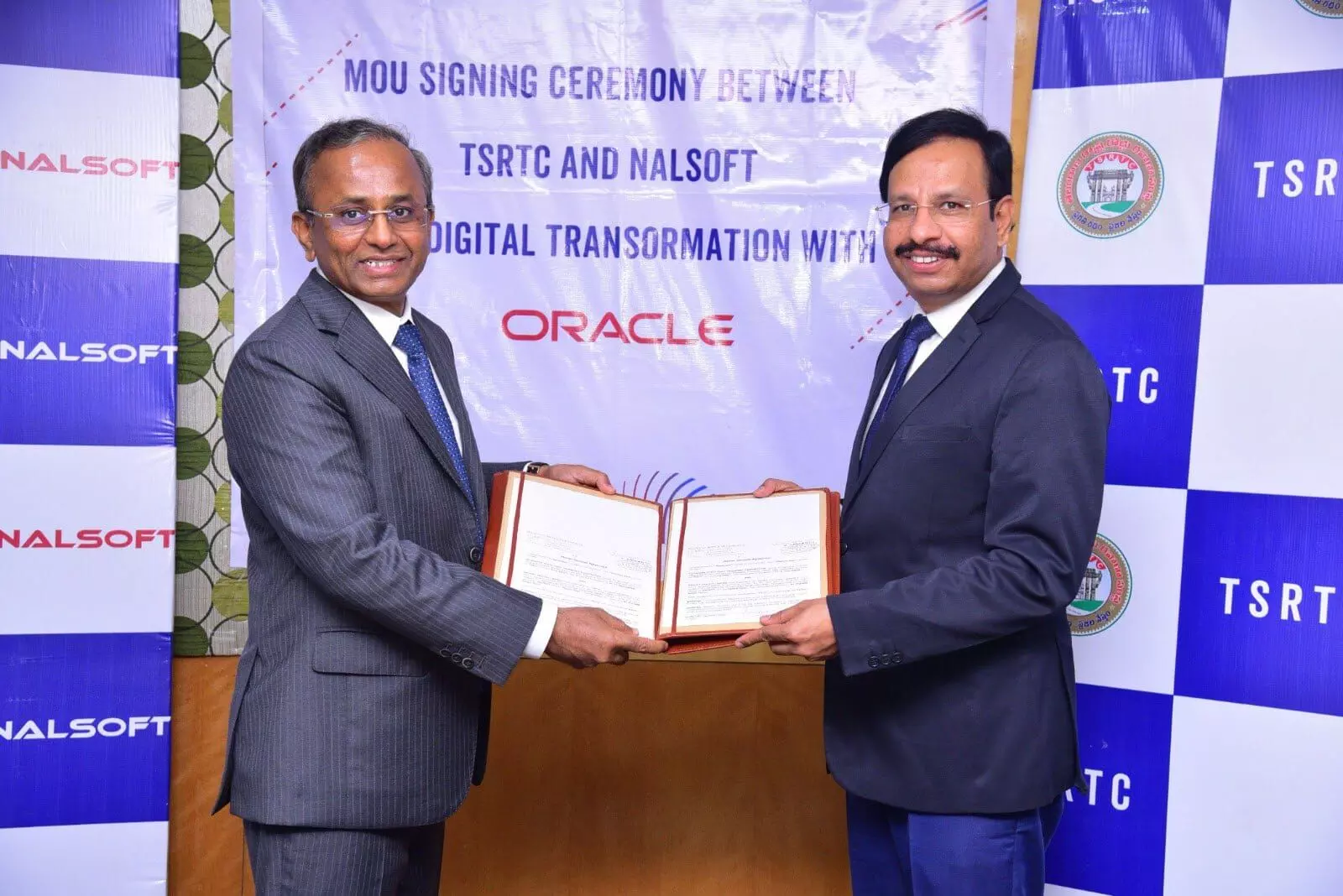TSRTC signs MOU with Nalsoft for Enterprise Resource Planning implementation
The Memorandum of Understanding (MOU) was signed and exchanged at Bus Bhavan by VC Sajjanar and CA.Venkata Nalluri, CEO of Nalsoft

HYDERABAD: The Telangana State Road Transport Corporation (TSRTC) signed a Memorandum of Understanding (MoU) with M/s Nalsoft on Monday for the implementation of Enterprise Resource Planning (ERP). TSRTC was the first and fastest State Road Transport Corporation undertaking in India to commission and deploy it.
The Memorandum of Understanding (MOU) was signed and exchanged at Bus Bhavan by VC Sajjanar and CA.Venkata Nalluri, CEO of Nalsoft.
Given the enormity of the organisation, the commissioning and implication were also complicated. With over 10,000 buses, 47,528 personnel (of which 37000 are drivers and conductors, balance mechanics), 200 officials, 99 depots (managed by 20 units), 364 bus stops, 3000 routes, 45 lakh passengers (30 lakh ticket paying and 15 lakh bus pass holders), and travelling 32 million kilometres each day.
It was possibly the only Public Transport Corporation in India with diverse operations such as Cargo, its own water brand, and others. It also possesses another distinction. Given the enormous size of the business, personnel, and operations, implementing ERP in record time is a difficult undertaking, but we are all committed to it, said VC Sajjanar, IPS, Vice Chairman and Managing Director.
V.C. Sajjanar, IPS, Vice Chairman and Managing Director, TSRTC, said shortly after the MoU was signed that the company was utilising cutting-edge technology as part of the digital transformation of various services and enhancing internal efficiency.
Bajireddy Govardhan, MLA and Chairman of TSRTC and Sajjanar, had emphasised the importance of having an effective Enterprise Resource Planning (ERP) system to have an online back office system for depots, zones, and the head office, integrating different departments such as Finance, HR, Payroll, Mechanical Engineering, Stores, and Purchase Departments for centralised control and access.
Sajjanar said that TSRTC had decided to implement the Oracle ERP project, with M/s Nalsoft as the implementation partner, in order to integrate all Departments and front office systems. He also Sajjanar said TSRTC has been in the forefront of adopting new technology and had previously launched various IT projects to reach out to passengers and workers.
Sajjanar said, "the year 2023 would be an IT year for TSRTC. It would benefit the firm and would assist in the integration of all operations. It'll be a terrific start for us. This is the age of information technology projects. He went on to say that no organisation can advance until it incorporates technology into its day-to-day operations".
The primary customer interface initiatives included the Online Passenger Reservation System, Online Bus Pass System, Cargo and Parcel Booking System, Vehicle Tracking, and Passenger Information System. Static QR Code-based UPI Payments have been implemented at all counters, online booking and long distance reservation services, and Pushpak Airport shuttles. Passengers can now book Bus on Contract and TTD Special Darshan Entry Tickets online.
The Corporation recently launched the "TSRTC Bus Tracking" App for tracking buses, the Commercial App for effective management of commercial earnings, and the TSRTC Employee App for managing employees' daily attendance, leave, and grievances.
CA Venkata Nalluri, CEO, Nalsoft said, "It is a collective effort. The timeline is just 9 months. It is very challenging as it takes years, but given their dedication, they will commission and complete it in a record time period of nine months. We must all gear up to meet those deadlines. The project kick starts today. He appealed to all to cooperate in the successful execution of the project".
He went on to say that the company must be process-driven rather than people-driven. People relocate, retire, and come and go. However, the processes remain and govern everything.
The key advantages of digital transformation include centralised operations planning, rationalisation of routes and services, improved administration of fuel, personnel, stores, and workshops, cost efficient revenue management, and so on. The ERP Implementation Project was scheduled to be finished in 9 months and operational in September 2023.



